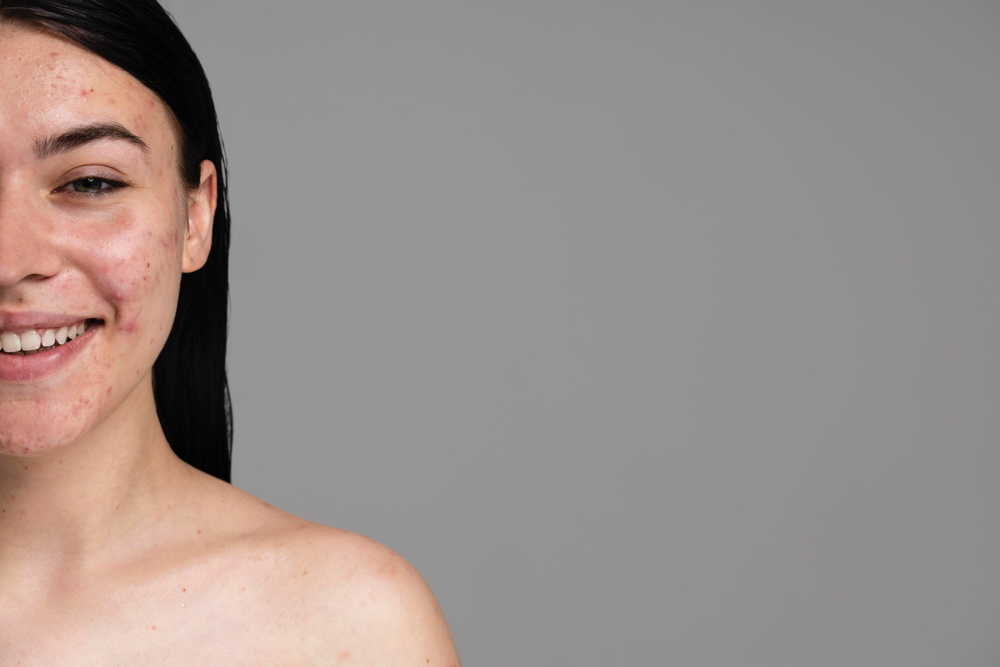Everything you need to know about rosacea—what it is, what the symptoms are, and how to treat it
Do you often notice a natural blush or redness on your skin? Chances are you might have rosacea.
What is rosacea?
Rosacea is a common skin inflammatory condition that causes redness on the face. It may vary in severity from one flare-up to another and its sufferers commonly include fair-skinned middle-aged women. Being the most searched skincare concern on the internet, rosacea may be triggered by any of the following:
- Sun exposure
- Spicy foods
- Emotional stress
- Alcohol consumption
- Caffeine intake
What are the symptoms of rosacea?
The symptoms of rosacea are complex and may be confused with other skin conditions such as acne, eczema, or an allergic reaction. It may begin with periods of intermittent flushing wherein facial redness appears for a short duration. However, if not managed, the flare-ups may worsen over time. Although the most common symptoms include flushing, redness, and breakouts, they may vary depending on the type of rosacea:
- Erythematotelangiectatic rosacea
Often cited as a subtype one, this type may be characterised by flushing and redness, swollen or sensitive skin, visibly broken blood vessels, burning skin, and rough, dry or scaly skin.
- Papulopustular rosacea
The symptoms of this type are similar to that of acne. The most common ones comprise acne-like breakouts, redness, oily or sensitive skin, broken blood vessels, and patches of red skin.
- Phymatous rosacea
Usually experienced by men, phymatous rosacea is a rare type that is linked with the thickening of the skin on your nose. Those with this form of rosacea may experience bumpy skin texture, large pores, thick facial skin, and visibly broken blood vessels.
- Ocular rosacea
The symptoms of ocular rosacea are centred around the eye area and they encompass dry and itchy eyes, diminished vision, cysts on the eyes, burning sensation, and sensitivity of eyes to light.
When should you consult a dermatologist about rosacea?
Rosacea usually begins with an inexplicable blush or sunburn on the facial area. Without treatment, these symptoms may become worse resulting in bumps, pimples, and in extreme cases, enlarged tissues. If you suspect you have rosacea, don’t ignore your symptoms and see a dermatologist for a diagnosis. Medically trained and board-certified professionals, like those at ISAAC Luxe, will conduct medical examinations and personalised consultations to provide you with customised treatment options for rosacea.
How to treat rosacea?
While there is no cure for this inflammatory condition, symptoms may be managed and controlled by taking the following steps:
- Skincare

Rosacea can make you feel like your skin is on fire. Hence, face masks are a great at-home treatment to keep the skin cool and moisturised. Refrigerated face masks work incredibly well to soothe inflamed skin. To avoid flare-ups, use a strong SPF or titanium dioxide sunscreen and try to stay away from the sun as much as possible. Incorporate skincare ingredients like aloe vera and niacinamide. Aloe vera relieves and calms flare-ups while niacinamide repairs the skin barrier to lock in moisture and prevent dryness. Try the Dr. G HA Intense Moisturiser that contains hyaluronic acid to relieve dehydrated skin and provides gentle yet rich hydration.
- Dietary changes

Apart from sun protection and using rosacea-friendly moisturisers, dietary changes may also help reduce flare-ups. In a few cases, rosacea symptoms may be triggered by an imbalance of microorganisms in our gut and skin. Consuming fibre-rich foods, like green leafy vegetables and fruits, that help promote good bacteria may help reduce flare-ups associated with rosacea.
Similarly, avoiding certain foods may also prevent the worsening of this inflammatory skin condition. A study conducted on women indicated an increased risk of rosacea due to alcohol intake. Other beverages like coffee and hot cocoa have also been linked to increased flare-ups. It is important to understand your triggers and to limit them as much as possible.
- Laser treatment

Skin care professionals may also recommend a clinical treatment to improve your skin appearance using painless laser therapy. This treatment involves the use of intense pulses of light to alleviate redness and inflammation associated with rosacea. It offers a gentle and long-lasting solution and removes superficial facial vessels by decreasing and eliminating redness. This rosacea treatment involves the use of local anaesthesia and requires four sessions. The recovery is immediate and the results may be visible in 2-3 months.
Book your appointment for rosacea treatment at ISAAC Luxe here.




